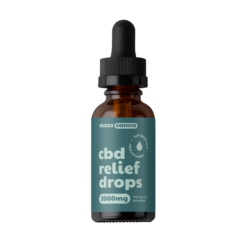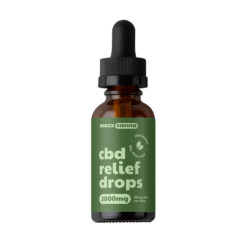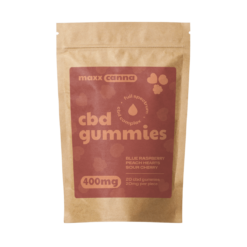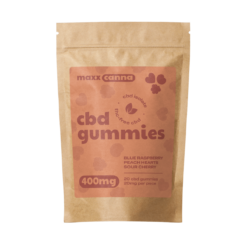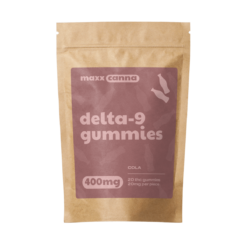
If you have been thinking about trying CBD oil in Canada, one question is inevitable i.e. “How long does it take to work?” Well, if you are dealing with stress or chronic pain, research says that CBD oil may help to ease your symptoms.
It’s a great idea to check out which CBD oil might give you the most awesome results. Some CBD oils take longer to work than others and you might want to decide which one is right for you.
It’s worth taking a look into the potential health benefits of CBD products as studies have shown great results and indicate that CBD oil has many benefits for well-being and health.
What is CBD Oil?
CBD oil, or cannabidiol oil, is a popular natural remedy derived from the cannabis plant. Unlike its psychoactive counterpart, THC, CBD doesn’t induce a “high.” Instead, it interacts with the endocannabinoid system, influencing receptors in the body to promote balance and well-being.
Extracted from hemp plants, CBD oil is known for its potential therapeutic benefits, including alleviating anxiety, reducing inflammation, and aiding in pain management.
Its non-intoxicating nature has led to widespread use for various health issues, and it comes in various forms, such as tinctures, capsules, and topicals. Research into CBD’s effects is ongoing, but many users praise its positive impact on their overall health and quality of life.
How to Take CBD Oil for Best Results?
Choosing the Right CBD Product
Selecting the appropriate CBD product is crucial for optimal results. Consider factors such as the reason for use, preferred method of consumption, and dosage control.
Common options include tinctures, capsules, edibles, and topicals, each offering distinct benefits based on personal preferences and desired effects.
Start with a Low Dosage
Begin with a low CBD dosage and gradually increase it. This allows the body to get used to the compound, minimizing the risk of adverse reactions.
Pay attention to your body’s response and adjust the dosage accordingly. Consulting with a healthcare professional can provide personalized guidance based on individual health conditions and needs.
Consistency is Key
Consistency in CBD consumption is vital for experiencing its full potential. Establish a regular schedule for taking CBD to maintain a steady level in the body.
This helps the endocannabinoid system achieve homeostasis, promoting balance and overall well-being over time.
Understand the Bioavailability
Different methods of CBD consumption offer varying bioavailability rates. Sublingual administration (under the tongue) tends to have higher bioavailability compared to edibles, as it allows the compound to enter the bloodstream more directly.
Understanding bioavailability can help users choose the most effective method based on their preferences and desired onset of effects.
Consider Individual Factors
Factors such as body weight, metabolism, and the specific health condition being addressed can influence the ideal CBD dosage.
Create your approach based on individual factors to maximize the effectiveness of CBD oil. Keeping a journal to track experiences and effects can aid in finding the optimal routine.
Consult with a Healthcare Professional
Before incorporating CBD into your routine, especially if you are taking other medications, consult with a healthcare professional.
They can provide guidance on potential interactions and ensure that CBD is a safe and suitable option for your specific health circumstances.
How long does it take for CBD Oil to work?
The onset of CBD oil’s effects varies based on factors such as the method of consumption and individual metabolism. When taken sublingually, effects are often felt within 20-60 minutes as the compound is absorbed directly into the bloodstream.
Ingesting CBD through edibles may result in a delayed onset, typically taking 1-2 hours due to the digestive process.
Topical applications, primarily used for localized relief, may take effect within minutes to an hour. However, individual responses vary, and consistent use over time often yields the best results.
What factors can impact the time it takes for CBD Oil to work?
Method of Consumption
The method of taking CBD plays a crucial role in the onset of its effects. Sublingual administration (under the tongue) allows for quicker absorption into the bloodstream, with effects typically felt within 20-60 minutes.
On the other hand, ingesting CBD through edibles leads to a delayed onset, usually taking 1-2 hours as the compound needs to pass through the digestive system.
Individual Metabolism
Each person’s metabolism is unique, influencing how quickly the body processes and absorbs substances. Individuals with faster metabolism may experience quicker effects, while those with slower metabolism may require more time for the CBD to take effect.
Dosage and Concentration
The amount and concentration of CBD in a product impact its effectiveness. Starting with a lower dose and gradually increasing allows the body to adjust and can influence how quickly the effects are felt. Higher concentrations may lead to more immediate results.
Body Composition
Factors such as body weight and fat percentage can affect how CBD is distributed and metabolized. Generally, individuals with higher body weight may require a slightly higher dose to experience the same effects as someone with lower body weight.
Overall Health and Endocannabinoid System
The individual’s overall health and the state of their endocannabinoid system contribute to CBD’s effectiveness. A well-functioning endocannabinoid system is more likely to respond efficiently to CBD, promoting a faster onset of effects.
Regularity of Use
Consistent use of CBD over time often yields the best results. Establishing a routine allows the compound to build up in the body, enhancing its overall effectiveness and potentially reducing the time it takes to experience noticeable effects.
How does CBD work in the system?
CBD interacts with the body through the endocannabinoid system (ECS), a complex network of receptors, enzymes, and endocannabinoids that plays a crucial role in maintaining balance and homeostasis.
Unlike THC, CBD does not bind directly to the CB1 and CB2 receptors but modulates their activity.
It enhances the endocannabinoids’ effects by inhibiting enzymes that break them down, prolonging their presence in the system. CBD also interacts with various receptors outside the ECS, influencing neurotransmitter release and receptor activity.
These interactions contribute to CBD’s potential therapeutic effects, such as reducing inflammation, alleviating anxiety, and promoting overall well-being.
How much CBD Oil should I take?
Determining the appropriate CBD oil dosage depends on various factors, including individual factors such as body weight, metabolism, and the specific health condition being addressed.
It’s advisable to start with a low dosage and gradually increase it while monitoring your body’s response. Many begin with 20-40 mg per day and adjust based on their needs.
Consulting with a healthcare professional can provide personalized guidance, especially if you’re taking other medications. Also keeping a journal to track effects and adjusting the dosage accordingly helps find the optimal amount for your situation.
Does CBD get you high?
No, CBD (cannabidiol) does not induce a “high” sensation. Unlike THC (tetrahydrocannabinol), another compound found in cannabis, CBD is non-psychoactive. It interacts with the endocannabinoid system without producing the euphoric effects associated with THC.
CBD derived from hemp contains only trace amounts of THC, typically below 0.3%, ensuring that it doesn’t have intoxicating effects.
Users can experience the potential therapeutic benefits of CBD without the mind-altering impact commonly associated with cannabis use.
How do you choose the right CBD Oil?
Determine the Purpose
Identify your specific health or wellness goals. Whether it’s managing anxiety, alleviating pain, or promoting overall well-being, understanding your objectives will guide the selection process.
Check CBD Source & Extraction
Opt for CBD oil derived from high-quality hemp plants. Look for products that specify the hemp source and utilize clean extraction methods, such as CO2 extraction, to ensure a pure and potent end product.
Verify THC Content
Legal CBD oil should contain less than 0.3% THC, ensuring it doesn’t produce psychoactive effects. Check product labels or certificates of analysis provided by manufacturers to confirm THC levels.
Choose Full Spectrum CBD Oil, Broad Spectrum, or Isolate
Decide between full spectrum, broad spectrum, or CBD isolate. Full spectrum CBD oil includes various cannabinoids, terpenes, and trace amounts of THC.
Broad spectrum contains multiple cannabinoids without THC, and the isolate is pure CBD. Each has unique benefits, so choose based on your preferences and any sensitivity to THC.
Consider Dosage & Concentration
Determine the CBD concentration per serving and overall dosage in the product. Beginners often start with lower concentrations and adjust based on their response. Consider the desired potency to match your individual needs.
Read Third-Party Lab Reports
Ensure transparency and quality by checking third-party lab reports. Reputable CBD manufacturers provide these reports, confirming the product’s cannabinoid content and absence of contaminants.
Delivery Method
Select a suitable delivery method based on personal preference. CBD oil comes in various forms, including tinctures, capsules, edibles, and topicals. Choose a method that aligns with your lifestyle and desired ease of use.
Seek Expert Advice
When in doubt, consult with healthcare professionals or knowledgeable CBD experts. They can offer personalized recommendations based on your health conditions, ensuring a safe and effective CBD experience.
Conclusion
Research is still going into the several benefits of CBD and results so far have been great. Most important of all is to buy the CBD oil that best suits your individual preferences. Just think about the most effective product for your particular issue.
A CBD balm may be best for joint or muscular pain while a tincture or capsules might be great for mental health issues. Always think about convenience first and also how quickly CBD oil will start to work..
FAQs
How is CBD oil made?
CBD oil is typically made by extracting cannabidiol from hemp plants using methods like CO2 extraction, resulting in a concentrated oil that can be used for various health and wellness purposes.
Is CBD oil legal in Canada?
Yes, CBD oil is legal in Canada. As of October 2018, recreational and medicinal use of cannabis, including CBD products, is permitted under specific regulations.
Is CBD Oil good for beginners?
Yes, CBD oil is suitable for beginners. Starting with a low dose and gradually increasing allows individuals to assess their tolerance and find an optimal dosage for their specific needs.
How many hours is CBD oil effective for?
The duration of CBD oil’s effectiveness varies, typically ranging from 4 to 8 hours. Factors like dosage, individual metabolism, and the method of consumption contribute to the duration of its effects.
Are there any side effects of using CBD oil?
While generally well-tolerated, some users may experience mild side effects such as dry mouth, fatigue, or changes in appetite. It’s essential to start with a low dose and monitor individual responses.
Should I take CBD oil every day?
Taking CBD oil daily can promote consistent levels in the body, potentially enhancing its therapeutic effects over time. However, individual needs and responses vary, so it’s advisable to establish a routine based on personal preferences and goals.

